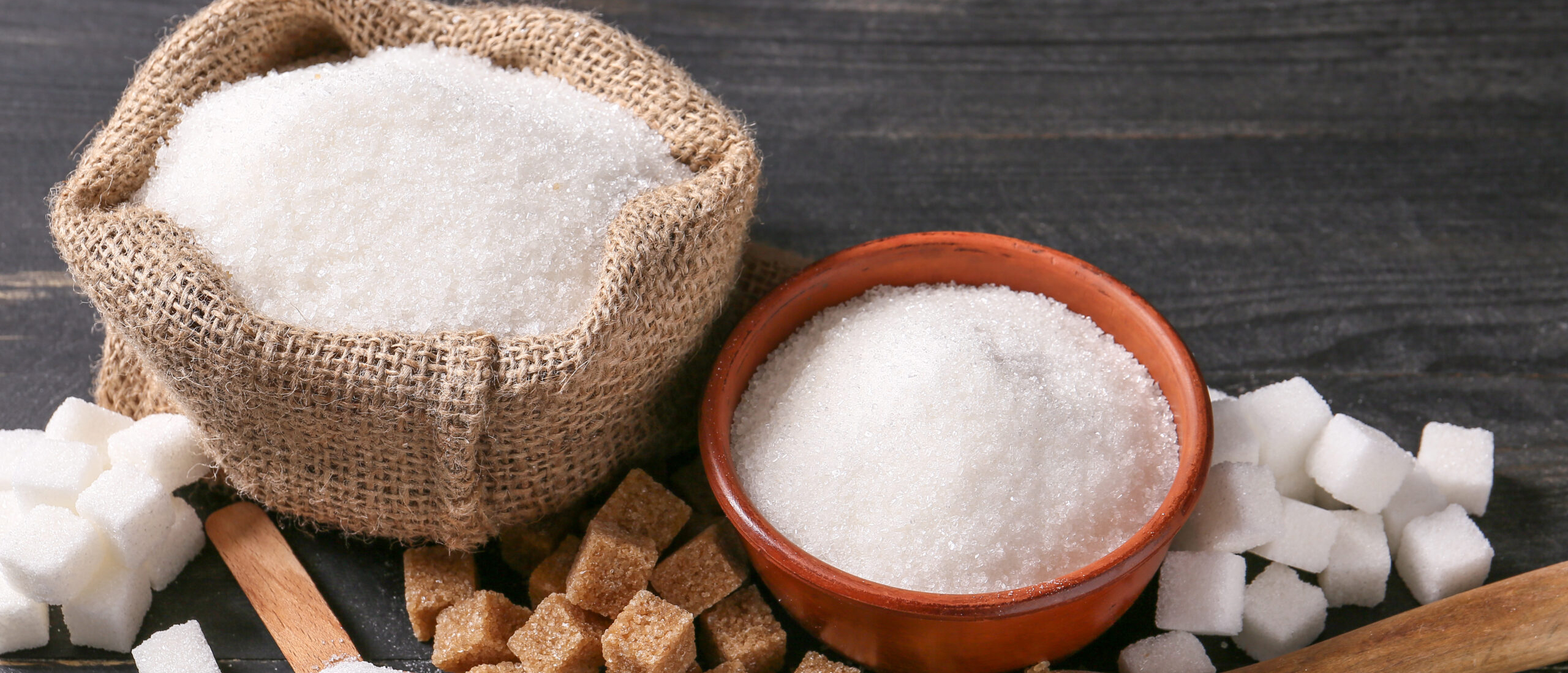Table of Contents

Are you curious about how much sugar you can have on a keto diet? Well, buckle up and get ready for a sugar-coated journey through the world of low-carb living. In this article, we’ll break down the ideal sugar intake for keto, unveil the role of net carbs, and help you navigate those sneaky hidden sugars. So, grab a seat and let’s explore how to balance your sugar intake and maintain ketosis. It’s time to take control of your sweet tooth!
Understanding the Sugar Limit on a Keto Diet
To successfully follow a keto diet, you need to be aware of and adhere to the limit of grams of sugar you can have. The goal of a keto diet is to enter a state of ketosis, where your body burns fat for fuel instead of carbohydrates. Consuming too much sugar can hinder this process and prevent you from reaching your desired health and weight loss goals.
So, how much sugar can you have on a keto diet? The general recommendation is to limit your daily sugar intake to no more than 20-30 grams. This includes both added sugars and naturally occurring sugars in foods. It is important to note that not all sugars are created equal. Natural sugars found in fruits and vegetables are generally more permissible on a keto diet compared to added sugars found in processed foods and sugary drinks.
To keep track of your sugar intake, it is crucial to read food labels and be mindful of the sugar content in the foods you consume. Opt for whole, unprocessed foods whenever possible and avoid sugary treats and beverages. It may take some time and effort to adjust to a lower sugar intake, but with practice and dedication, you can successfully follow a keto diet and reap its benefits.
Breaking Down the Ideal Sugar Intake for Keto
Limiting your daily sugar intake to a specific range is vital for achieving the ideal sugar intake on a keto diet. In a keto diet, the primary goal is to shift your body into a state of ketosis, where it burns fat for fuel instead of carbohydrates. To achieve this, it is important to minimize your sugar consumption as much as possible.
So, how many grams of sugar can you have on a keto diet? The general recommendation is to limit your daily sugar intake to less than 20 grams. However, it is important to note that everyone’s body is different, and some individuals may need to consume even fewer grams of sugar to achieve and maintain ketosis.
In terms of how much sugar is allowed in a keto diet, it is crucial to focus on consuming natural sources of sugar, such as those found in fruits and vegetables. These sources also provide essential vitamins, minerals, and fiber. It is best to avoid added sugars and processed foods, as they can easily push you over your sugar limit.
Unveiling the Role of Net Carbs in Sugar Consumption on Keto
If you’re following a keto diet, understanding the role of net carbs in your sugar consumption is crucial. While the keto diet is known for being low in carbohydrates, it’s important to note that not all carbs are created equal. Net carbs are the total carbohydrates in a food minus the grams of fiber and sugar alcohols. This is because fiber and sugar alcohols are not fully absorbed by the body and therefore do not affect blood sugar levels to the same extent as other carbohydrates.
On a keto diet, the goal is to keep your net carb intake low, typically around 20-50 grams per day. This means that you need to be mindful of not only the grams of sugar you consume but also the overall net carb content of the food. While it’s recommended to limit your sugar intake as much as possible on a keto diet, it’s not necessary to completely eliminate it. As long as you stay within your net carb limit, you can still enjoy small amounts of sugar in your diet.
It’s important to remember that the keto diet is a high-fat, moderate-protein, low-carb diet. The focus is on consuming healthy fats, such as avocados, nuts, and olive oil, and limiting your intake of carbohydrates, including sugars. By prioritizing net carbs rather than total sugar grams, you can make informed choices that align with your keto goals.
Navigating Hidden Sugars on a Keto Diet
Watch out for sneaky sources of sugar that can derail your keto diet. While it’s important to limit your overall sugar intake on a ketogenic diet, it’s equally crucial to be aware of hidden sugars lurking in various foods and beverages. These hidden sugars can unknowingly increase your carbohydrate consumption and hinder your progress towards ketosis.
One common source of hidden sugars is processed foods. Manufacturers often add sugar to enhance the flavor of packaged goods, such as sauces, dressings, and condiments. Even seemingly innocent products like ketchup or salad dressings can contain high amounts of added sugars. To avoid these hidden culprits, opt for homemade versions or read the labels carefully to choose products with no added sugars.
Another culprit is flavored beverages, including fruit juices, sodas, and energy drinks. These drinks often contain excessive amounts of sugar, which can quickly add up and kick you out of ketosis. Instead, choose unsweetened alternatives like water, herbal tea, or sparkling water.
Additionally, be cautious of seemingly healthy snacks like granola bars, protein bars, and flavored yogurts. These products can be packed with hidden sugars, even if they claim to be low in carbohydrates. Always check the nutritional information and choose options with minimal sugar content or make your own snacks using keto-friendly ingredients.
Exploring Sweeteners and Their Impact on Sugar Intake on Keto
When it comes to sweeteners on a keto diet, you’ll need to be mindful of their impact on your sugar intake. While traditional sugar is off-limits on a ketogenic diet due to its high carbohydrate content, there are alternative sweeteners that you can use in moderation to satisfy your sweet tooth.
One commonly used sweetener in the keto community is stevia. Derived from the leaves of the stevia plant, stevia is a zero-calorie sweetener that does not raise blood sugar levels. It is considered safe for consumption and can be used in various forms such as liquid drops or powdered form.
Another popular sweetener is erythritol, which is a sugar alcohol. Erythritol has a negligible effect on blood sugar and insulin levels, making it a suitable choice for those following a keto diet. It provides sweetness without the added carbs and calories.
However, it’s important to note that while these sweeteners are keto-friendly, they should still be consumed in moderation. Overconsumption of sweeteners can potentially trigger cravings and hinder progress on your ketogenic journey. Additionally, some individuals may experience digestive issues, such as bloating or diarrhea, when consuming large amounts of sugar alcohols like erythritol.
Determining the Daily Sugar Allowance on a Keto Diet
To maintain ketosis and support your health goals, it is crucial to establish a specific daily sugar allowance on a keto diet. While the exact amount of sugar you can have on a keto diet may vary depending on individual factors such as metabolism and activity level, most experts recommend limiting your daily sugar intake to less than 20 grams.
By keeping your sugar intake this low, you can ensure that your body stays in a state of ketosis, where it burns fat for fuel instead of carbohydrates. Consuming too much sugar can cause a spike in blood sugar levels, which can kick you out of ketosis and hinder your progress.
It is important to note that the 20 grams of sugar allowance includes both added sugars and naturally occurring sugars found in foods such as fruits and dairy products. While fruits contain essential vitamins and minerals, they can also be high in sugar. Therefore, it is recommended to choose low-sugar fruits such as berries and limit your intake of higher sugar fruits like bananas and grapes.
Tips for Minimizing Sugar Consumption on Keto
Cutting back on sugary foods and beverages can help you achieve and maintain ketosis on a keto diet. Here are some tips to help you minimize your sugar consumption while following a keto diet.
1. Read food labels: Pay attention to the ingredient list and look for hidden sources of sugar, such as high fructose corn syrup, maltose, or sucrose. Avoid foods that contain these ingredients.
2. Choose whole foods: Opt for whole, unprocessed foods that are naturally low in sugar. This includes vegetables, meats, fish, eggs, nuts, and seeds. These foods are not only low in sugar but also provide essential nutrients.
3. Use sugar substitutes: If you have a sweet tooth, consider using sugar substitutes like stevia, erythritol, or monk fruit extract. These alternatives can provide sweetness without the added sugar and calories.
4. Be mindful of condiments and sauces: Many condiments and sauces contain added sugars. Be sure to read the labels and choose options that are sugar-free or have minimal sugar content.
5. Plan your meals and snacks: By planning your meals and snacks in advance, you can make sure you have keto-friendly options readily available. This can help prevent you from reaching for sugary foods when you’re hungry and in a rush.
Maintaining Ketosis: Balancing Sugar Intake on a Keto Diet
Keep in mind the importance of moderation when it comes to balancing your sugar intake on a keto diet. Maintaining ketosis, the metabolic state where your body burns fat for fuel instead of carbohydrates, is the main goal of a keto diet. Consuming too much sugar can hinder your progress and kick you out of ketosis. While there is no specific limit on the grams of sugar you can have on a keto diet, it is generally recommended to keep your sugar intake as low as possible.
To maintain ketosis, it is crucial to limit your overall carbohydrate intake, including sugars. Most experts suggest consuming no more than 20-50 grams of net carbs per day to stay in ketosis. Net carbs are calculated by subtracting the grams of fiber from the total grams of carbohydrates. This is because fiber does not significantly impact blood sugar levels.
When it comes to sugar, it is best to opt for natural sources like berries or small amounts of other low-sugar fruits. Artificial sweeteners can be used in moderation, but it’s important to choose those that do not raise blood sugar levels. Stevia, erythritol, and monk fruit sweeteners are popular choices among keto dieters.

